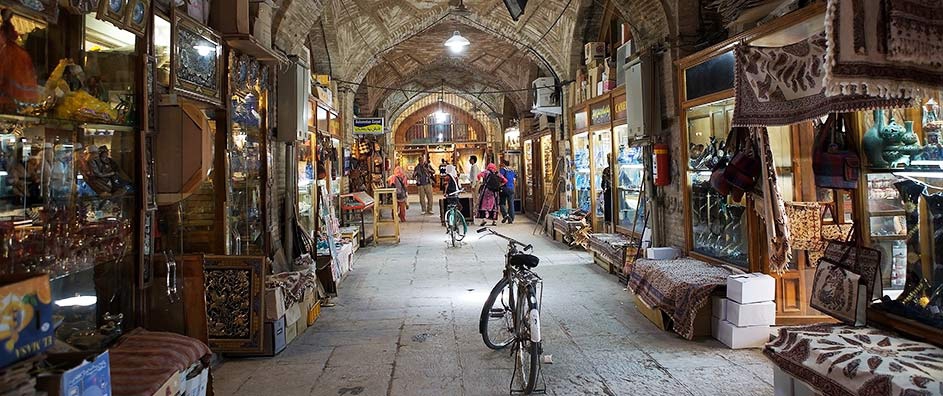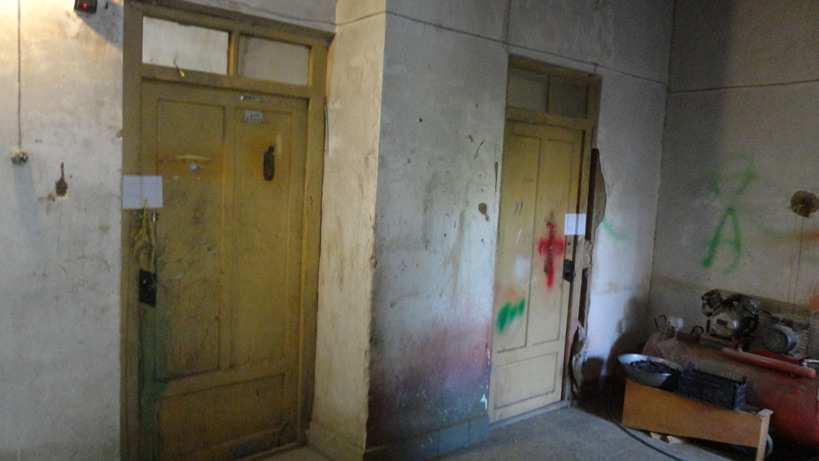The views expressed in our content reflect individual perspectives and do not represent the authoritative views of the Baha'i Faith.
Knowledge, purity, devotion, discipline, independence, have nothing to do with outer appearance and dress. Once in the course of my travels I heard an eminent personage make the following excellent remark, the wit and charm of which remain in memory: “Not every cleric’s turban is a proof of continence and knowledge; not every layman’s hat a sign of ignorance and immorality. How many a hat has proudly raised the banner of knowledge, how many a turban pulled down the Law of God!” – Abdu’l-Baha, The Secret of Divine Civilization, pp. 58-59.
Iran’s Baha’is constitute the largest non-Muslim minority in the country, and those 300,000+ people come from every strata of society, including all religious backgrounds, classes and walks of life. Baha’is own businesses, but Iran also has many Baha’i farmers—and they have suffered a widespread, wholesale, ethnic cleansing-style removal from their farms. Iran’s rural villages, some profoundly impacted by the demands and prejudices of the country’s fundamentalist clerics, have ejected Baha’i farmers and expropriated their farms, causing a widespread rural catastrophe for Baha’i farmers.
Baha’is have had their farms and orchards forcibly occupied, their crops seized and their property summarily confiscated—with no legal recourse. They cannot get supplies for their farms, and cannot sell their produce. Many Baha’i peasant farmers in small villages have been forced to leave their villages and their livelihood behind and move to the cities. This has even occurred in majority-Baha’i villages, when entire villages have been cleared of Baha’is in acts of “ethnic cleansing” reminiscent of Kosovo or Bosnia.
The Baha’i villagers, forced to move to cities where they can only exist as refugees, then become dependent on the charity of other Baha’is. Previously this had occurred only in villages with a large number of Baha’is, but since 2005 this forced removal campaign has become much more systematic, affecting villages with either large or small Baha’i populations.
Determined to wipe out the Baha’is, Iranian government authorities and agencies have harassed and persecuted Baha’is and their businesses and farms: creating innumerable unnecessary obstacles for Baha’is trying to make a living, such as:
- sending them from one office to another (or to offices that do not exist) to obtain or submit business-related documentation;
- repeatedly ‘losing’ the files of Baha’i business owners;
- entering Baha’i-owned business premises and confiscating equipment;
- requiring Baha’is to fill in forms that request detailed personal information about themselves and other family members;
- placing pressure on Muslims to annul contracts they have with Baha’i-owned businesses;
- and sealing business premises, sometimes for weeks.
Banks, under orders from the Intelligence Ministry, refuse to issue loans to Baha’is and their businesses, even though they fulfill all the eligibility criteria. Where Baha’is, having no other means of earning money, have rented out their properties, authorities tell tenants that the rent should not be paid to their Baha’i landlords but to government agencies.
In Iranian towns like Semnan, Hamadan and Tonkaban, recent government action has resulted in the closure of all Baha’i businesses. On 17 November 2012, for example, Iran’s Intelligence and Security Ministry forcibly closed every Baha’i shop in Hamadan. Baha’is in Iran live in fear that the drastic actions in these towns may be test cases, used by the government to gauge international reaction, before they forcibly close every Baha’i business in the country—just as the Nazis did to all Jewish businesses in Germany in the 1930s.
The fundamentalist Islamic regime in Iran has proven its determination to cut off every avenue for the Baha’is to earn a livelihood, leaving them with only two remaining options–either forcing the Baha’is to convert to Islam, or to leave the country illegally. In another reminder of the parallels between the situation of the Baha’is today and the German Jewish community under Nazi rule in the early 1930s, the Iranian government has made it illegal to be a Baha’i—and illegal for Baha’is to leave Iran.
Those stark parallels caused the international Jewish NGO, the Anti-Defamation League, to issue an alarmed press release in April 2006, saying that the steps the Iranian government had taken against the Baha’is were “reminiscent of the steps taken against Jews in Europe and a dangerous step toward the institution of Nuremberg-type laws.”
You May Also Like
Comments


















Unsere Zeit auf Erden ist beschränkt